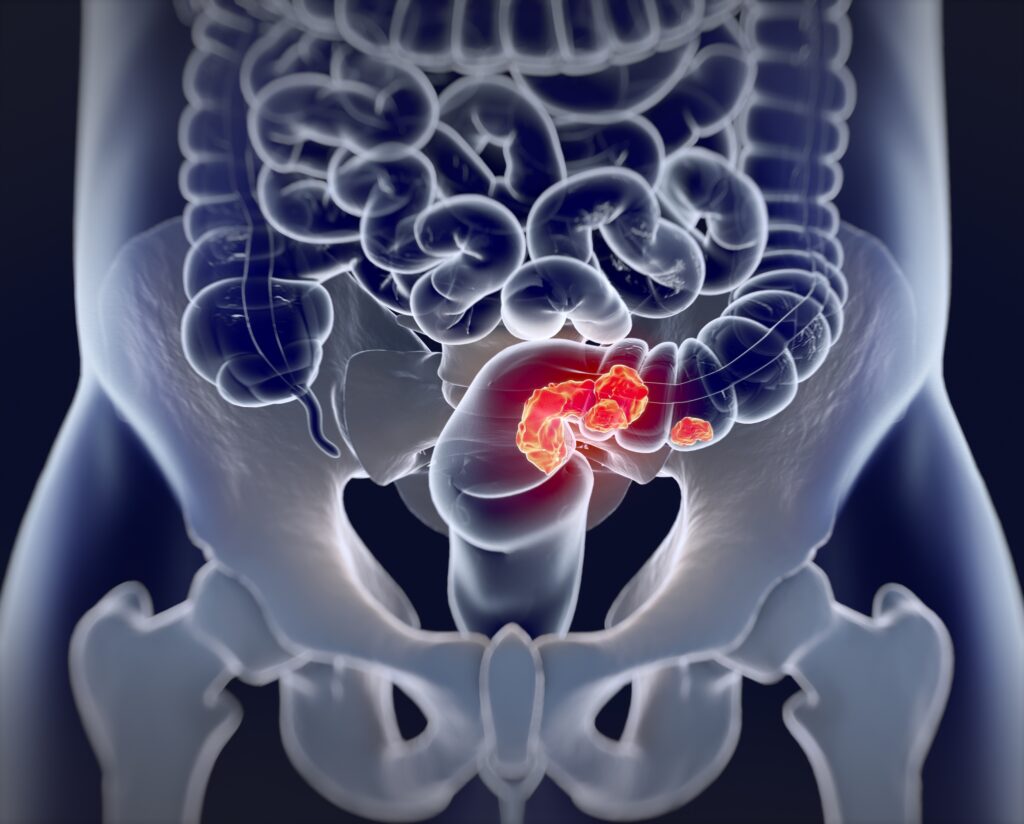1. What is Rectal Cancer? Rectal cancer is a type of cancer that develops in the cells of the rectum, which is the last part of the large intestine. It usually begins as small, noncancerous polyps that can develop into cancer over time.
2. Causes of Rectal Cancer:
- Genetic factors: Certain genetic mutations can increase the risk of developing rectal cancer.
- Lifestyle factors: Factors such as a diet high in red or processed meats, low in fiber, smoking, excessive alcohol consumption, and a sedentary lifestyle can contribute to the development of rectal cancer.
- Age: The risk of rectal cancer increases with age, with most cases diagnosed in individuals over the age of 50.
- Inflammatory bowel disease: Conditions such as ulcerative colitis and Crohn’s disease can increase the risk of developing rectal cancer.
3. Symptoms of Rectal Cancer:
- Rectal bleeding or blood in the stool
- Changes in bowel habits, such as diarrhea, constipation, or narrow stools
- Abdominal discomfort or pain
- Feeling of incomplete evacuation after bowel movements
- Unexplained weight loss
- Fatigue or weakness
4. Diagnosis of Rectal Cancer:
- Physical examination: A digital rectal examination (DRE) to detect any abnormalities in the rectum or surrounding tissues.
- Colonoscopy: A procedure to examine the rectum and entire colon using a flexible tube with a camera.
- Biopsy: Removal of a tissue sample for examination under a microscope to confirm the presence of cancerous cells.
- Imaging tests: CT scan, MRI, or PET scan to determine the extent of the cancer and whether it has spread to other parts of the body.
5. Treatment of Rectal Cancer:
- Surgery: The primary treatment for rectal cancer involves surgical removal of the tumor and surrounding healthy tissue. In some cases, a temporary or permanent colostomy may be necessary.
- Chemotherapy: Administration of anti-cancer drugs to destroy cancer cells or prevent them from growing and dividing.
- Radiation therapy: Use of high-energy rays to kill cancer cells or shrink tumors before surgery (neoadjuvant therapy) or after surgery (adjuvant therapy).
- Targeted therapy: Drugs that target specific molecules involved in cancer growth and progression, such as monoclonal antibodies or tyrosine kinase inhibitors.
6. Prevention of Rectal Cancer:
- Healthy lifestyle choices: Eating a balanced diet rich in fruits, vegetables, and whole grains, limiting red and processed meats, maintaining a healthy weight, regular exercise, avoiding smoking, and moderating alcohol consumption can reduce the risk of rectal cancer.
- Screening: Regular screening tests, such as colonoscopy, starting at age 45 or earlier for individuals at higher risk, can help detect precancerous polyps or early-stage cancer when treatment is most effective.
7. Conclusion: Rectal cancer is a serious condition that requires early detection and prompt treatment for the best outcomes. Understanding the risk factors, recognizing the symptoms, and undergoing regular screening are essential for the prevention and early detection of rectal cancer. Treatment options may include surgery, chemotherapy, radiation therapy, and targeted therapy, depending on the stage and location of the cancer. Making healthy lifestyle choices can also help reduce the risk of developing rectal cancer.




